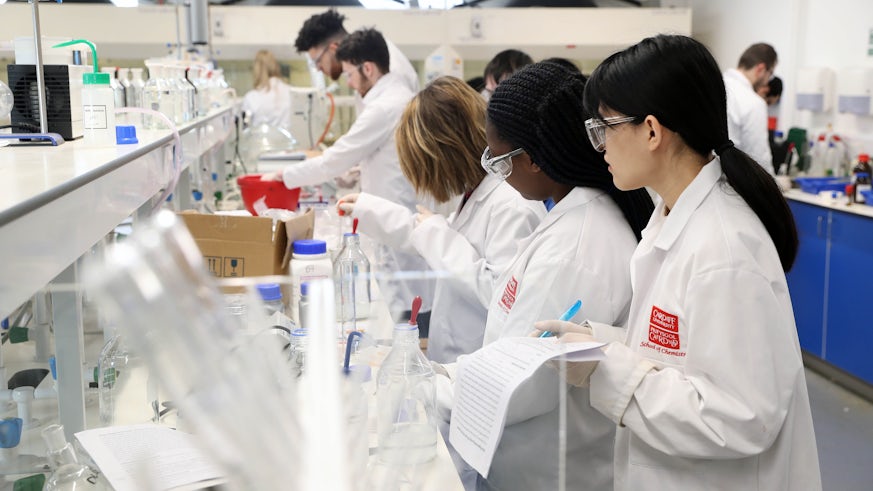International bursary recipient joins Cardiff research group
31 August 2018

We are delighted to welcome Royal Society of Chemistry (RSC) International Undergraduate Research Bursary recipient, Pâmela Bernardini from the Federal University of Rio Grande do Sul (UFRGS) in Brazil, to the School of Chemistry.
Pâmela is one of two students who have secured a place on the RSC’s pilot scheme, which provides funding for undergraduate students on accredited degrees run outside of the UK or Ireland to carry out a research placement at an accredited university in the UK or Ireland.
She will be working as part of Dr Tim Easun’s research group on a project focused on the creation and characterization of materials that, once ready and released for use, will help us to understand nanofluidic motion of molecules. This research will explore some of the still unexplained mechanisms of chemical phenomena, including the absorption and separation of gases. At the end of the project, the group hopes to create a new photoresponsive metal-organic framework and will have studied the gas uptake of the material in both light and dark states.
Pâmela says: “Being one of the two winners of this bursary was simply the most wonderful thing that happened to me… I’m pleased to have been given such an amazing opportunity. It has given me the chance to work in a UK university laboratory on an important and significant project, supported by incredible professionals like Dr Timothy Easun.
“To have experts like Tim supporting my research at an international university is amazing and will add value to my work. That’s what makes me so excited about going on this journey.”
Dr Tim Easun shares Pâmela’s excitement: “In academic research, the best science is done by collaboration with the right people – who might be anywhere in the world. Knowledge sharing with researchers who have a different perspective and live in a different culture can bring unexpected insight into what we are already doing and can be transformative when it comes to problem-solving and generating new ideas.
“It is also an opportunity to share our methods with and offer training to someone who may not have the same level of access to equipment and related technical expertise as we are fortunate to have in the UK.
“If the visit goes well I would hope to play a part in inspiring a young chemist to stay in the profession, and future visits are likely to happen from the same place. Brazil is also particularly relevant to my university at the moment as we are setting up formal relationships with several institutions there and having existing connections is potentially helpful in the medium-long term.”